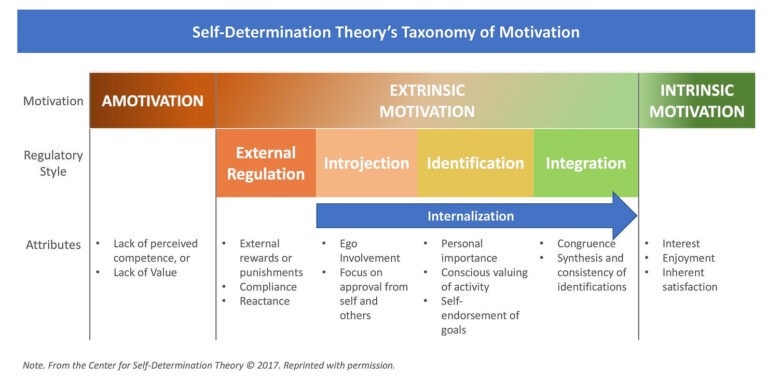How to Feel More Motivated (Pt 1): 3-Ingredient Sauce for Success!
In this multi-part series on mastering your motivation, I will share the key, research-based principles that are critical for long-term, enduring motivation as you pursue and optimize your most important intentions. In part 1, you’ll learn the three ingredients of the special sauce for how to feel more motivated!

How Not to Set Yourself Up for Success
“I needed this mentally more than anything,” he said to me as we discussed the goals he’d set for himself in an effort to take back control of his health.
“Between Thanksgiving and Christmas I gained about 12 pounds, and I am finally doing something about it. I’ve cut out all sugar, I’m having shakes for two meals a day, and I’m not eating any meat…”
He looked over at his girlfriend and said, “Can I have rice?”
I smiled. I understood. Sometimes we want something to shock us into making a change. It can feel very motivating to take drastic measures when we feel stuck in a rut. The dopamine rush accompanying the “let’s do this!” decision can feel like a jetpack to success!
“Yeah,” he continued, “…so I’m just doing this for 30 days, I’ll drop the weight, and then I’ll maintain it. I’ll show you the meal plan so you can tell me what you think.”
I didn’t want to burst his bubble of excitement and tell him what I was thinking.
Motivation is Influenced by Your Beliefs
To do this wisely, and truly know how to feel more motivated, he’d need to get in touch with a few important variables:
- His beliefs around maintenance were misguided
- He was misunderstanding what he was eating and why his body was responding the way it was
- His ideas about good vs bad foods and choosing to restrict in such rigid ways would not work in his favor
- That not having anything but the number as his motivating factor would cut his progress off at the knees.

How to Feel More Motivated: What to Watch Out For
I’m all for adopting fun, short-term challenges. We thrive with novelty, and uncertainty forces us to expand our repertoires. My friend’s 30-day challenge could inferno the fat off his body…along with energy, muscle, and focus. But what would happen after the 30 days? What would uphold his motivation to maintain intention and awareness around his nutrition and health behaviors?
Over the years that I’ve been supporting hundreds of individuals as they’ve set goals for behavior change, I’ve learned that each person’s experiences and history is different and nuanced, and yet when viewed as a whole, they demonstrate seams of similarity when it comes to their understanding of motivation.

Specific practices exist that support the type of motivation that carries an individual long-term. On the flip side, I’ve noted the processes of those who flounder from diet to diet, searching desperately for the next best thing.
But it doesn’t have to be diet related. What I’ve witnessed is a common problem- we never seem to find the sweet spot of the motivational middle that enables a grounded, stable, flexible, adaptable pursuit.
If you truly want to know how to be more motivated, there are no hacks! The type of motivation we’re all looking for satisfies three universal, basic psychological needs. No matter our age, heritage, gender, race, or upbringing, these needs are the gear shifts of our grinds. When supported, we thrive. When undermined, we falter.
If you truly care about how to be more motivated, there are no hacks. Focus on autonomy, competence, and relatedness.
Did you know that as humans we share 99% of our DNA with each other? Just like all of us have three physical / biological needs to survive and thrive, we have three psychological needs to survive and thrive. When one or more of these needs goes unmet or feels threatened in some way, it can often feel as if we are crumbling inside, and that our goal pursuits won’t survive.
How to Feel More Motivated: Target the Basic Psychological Needs
We flail, we feel chaotic and out of sorts, we can feel as if we’ve lost our edge; and we may hear ourselves asking, “Where did my mojo go?” We may even act in ways we’d label as self-sabotage. Why?

Because if there’s one thing we need in our lives to feel free, authentic, and like we have agency in our lives, it’s autonomy.
Autonomy
Autonomy is a felt sense of choice. You know how it feels to be backed into a corner, when something is demanded of you vs when you’re invited to choose, have a say, express your opinion, and weigh the consequences of your decisions. It’s not uncommon to move into either a tailspin or a sense of numbness when our autonomy is threatened.
Competence
Competence is a felt sense of mastery and effectiveness, and it’s bolstered when we have a sense of choice! When we engage in activities and have experiences in which we can develop skills and utilize our expertise, our competency builds. As a result, we may also feel like we have more choices! Autonomy builds competence, and competence builds autonomy. We can personally do things that threaten our sense of competence, but our competence can also be threatened by people or situations that don’t support the building of it.
Relatedness
Relatedness is a felt sense of belonging. When satisfied, we feel connected and engaged with others. We feel we can love and receive love, compassion, and empathy. It’s built with experiences of care and warmth, and it’s stripped down with experiences of isolation, loneliness, rejection, and alienation.
A Story About How to Be More Motivated Using the Basic Psychological Needs
Terry came to me struggling within her current role at a healthcare organization. She explained her experience of being under the thumb of a toxic manager who constantly criticized her, threw her under the bus, took credit for her work, and devalued her at every turn. She somehow made it through the experience, but not without significant stress that continued for years after this manager was fired. Terry could not make sense of how much she had been affected by this person and desperately wanted to feel what she’d felt before this woman came into her life—potent, vital, intelligent, capable.
During the time this was occurring, Terry had started eating a lot more to cope with the discomfort. She would eat on the way home from work, not tasting a single bite. She’d snack mindlessly on the weekends, dreading returning to work. She hated that she was doing this, and noticed how after eating, she’d beat herself up for it.
When I educated Terry about the 3 basic psychological needs, it was like a lightbulb went off in her mind. She laughed. And then she cried. Her experience finally made sense to her. Her boss had threatened all three of her vital psychological needs! She was just doing what she knew to do to take care of herself, but she needed to learn how to feel more motivated… in a more skillful way.

How to Feel More Motivated when the Basic Psychological Needs are Blocked
When any one of the psychological needs is blocked, our determination feels compromised, and the vitality we started our goal pursuit with, plummets. Vitality is a sense of energy and aliveness that promotes motivation and a desire to persevere in the face of challenges. The emotional overeating episodes of my client were attempts to re-establish solid ground. Tara Brach, psychologist and meditation teacher, calls these “false refuges.” In other words, we seek refuge from (or solace in) things that do not meet our authentic needs.
How good do you feel after you kick the dog, yell at your spouse, overeat, spend too much money, or overdrink when you know you’ve done it to avoid something that needs your attention?
How does that quote go? “Resentment is like drinking poison and waiting for your enemies to die.”
Do you need to understand how to feel more motivated? In a way that’s truly nourishing?
In part 2 of this series, we’ll look at additional examples of how we often try to take care of ourselves but end up compromising our psychological needs in the process. I will share an activity that will help you uncover what self-sabotage looks like for you and how to shift gears for greater empowerment.
Curious if coaching is appropriate for you? Check out my FAQs!
If emotional overeating is a behavior your find yourself stuck in, consider The Confident Coping Without Food System. I have many clients who take my course and meet with me for individual coaching sessions simultaneously to catapult their learning! Learn about options!






